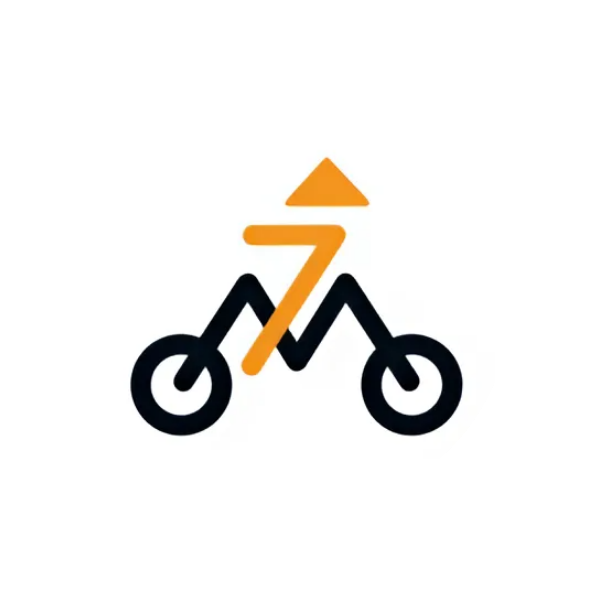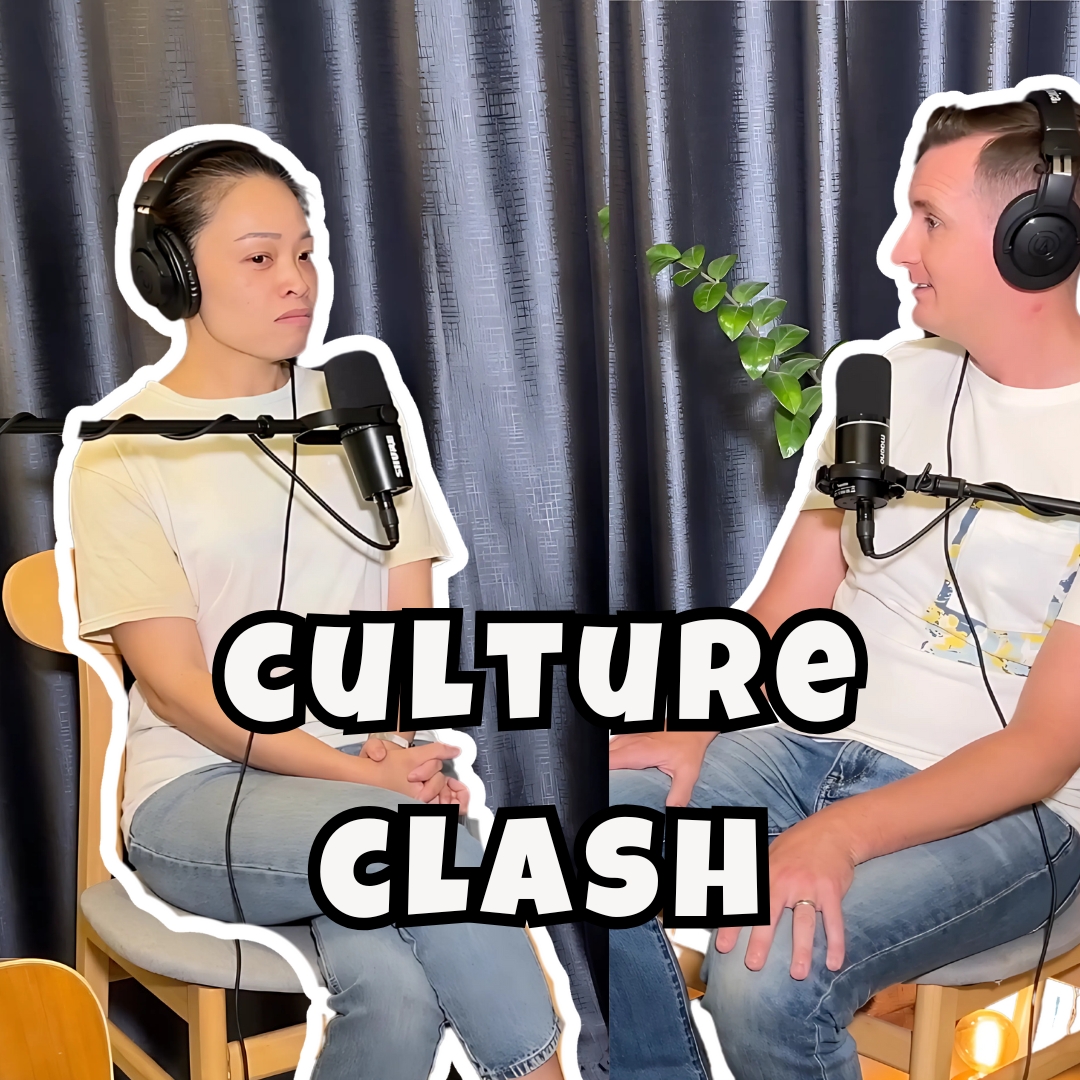One of my favourite things about doing this podcast was how much I learn about Vietnam — not from textbooks, but from people. This episode with Phuong Anh was the perfect example of that.
I met her at a networking lunch for Overseas Vietnamese, organised by Annie Vo, who also happened to be the sponsor of this podcast season (thanks to Premier Dental!). It was a great event. Honestly, I felt like the token white guy in the room, but Annie encouraged me to come anyway, and I was glad I did. That’s where I met Phuong Anh, and our conversation left a lasting impression on me.
What made this talk special was not just where she’d lived or what she did for work, it’s about how language, gender, and culture can shape how you’re seen — and how you see yourself.
From Saigon to Berlin — The Start of a New Life
Phuong Anh was born in Saigon but moved to Berlin when she was eight years old. She’d lived in four different countries, married an American, and worked as a plant scientist — definitely a first for the Vietnam podcast!
But what stood out most wasn’t her career or how many stamps were in her passport. It was how she spoke about identity — how she moved through life not always knowing where she belonged.
Growing up in Vietnam, she remembered the little things. Her family didn’t have much, but they had enough. She talked about sharing a pencil sharpener in school, being allowed to eat 200 grams of meat a month, and learning to ride a bike in her neighbourhood. It wasn’t a rich life, but it was full of warmth and community.
Then everything changed. One day, she was in District 10, and the next, she was standing in a freezing Berlin winter, wearing an áo dài and a windbreaker. She remembered seeing a mall filled with toys for the first time and not wanting to leave. It was overwhelming, exciting, but also the beginning of a long journey of cultural contrast.
More Stories: Bridging Worlds: Identity, Legacy, and Coming Home
“I Didn’t Know I Was Vietnamese”
One moment from our conversation really stuck with me. Anh told me she didn’t realise she was Vietnamese — or even Asian — until much later in life. Growing up in Berlin, all her friends were white. She saw herself reflected in them, not in the mirror.
It wasn’t until she began to understand culture, identity, and later, race, that she had what she called a “click” moment. That hit me. It reminded me how invisible identity can feel until the world holds up a mirror and shows you what it sees.
Bread vs. Rice — And the First Signs of Culture Shock
One of the lighter moments was when she said, “All they had was bread.” In Vietnam, rice is a staple with every meal. In Germany, it was just bread, bread, and more bread. I laughed because I’d heard this exact complaint from other Vietnamese friends who lived or travelled in Europe.
But the food difference symbolised something bigger — a new environment where everything felt closed. In Vietnam, doors are open. Neighbours talk to each other. There’s a strong sense of community. In Berlin, especially in the early ’90s, she noticed how everyone shut their doors — both literally and socially. It was a much lonelier world.
Language Shapes How We See Ourselves
One thing I’ve learned through this podcast is how language affects identity. For Anh, learning German changed the way she thought. She had to copy her classmates just to survive third grade, but eventually, she became fluent. German became her main language. Vietnamese faded.
She didn’t grow up around other Vietnamese kids. Her world was white. And for a long time, she didn’t feel particularly Vietnamese. Later, as an adult, she tried to reconnect with her heritage. She spent some teenage years in Vietnam — her dad felt she had lost touch with her roots — and that helped her relearn Vietnamese.
Even so, Vietnamese wasn’t easy to reclaim. It’s full of layers — you speak differently to older people, younger people, people on your mother’s side versus your father’s. Pronouns aren’t just pronouns; they reflect hierarchy, respect, and relationships. Compared to German, where you just say what you want, Vietnamese was a different world.
Returning to Vietnam — And Facing Reverse Culture Shock
When Anh returned to Vietnam as an adult, her mum warned her: “You can’t bring the German attitude back with you.” At first, she didn’t believe it. But within a month, she understood.
She described herself as direct, structured, and progressive. She didn’t conform to gender roles, and she liked things to be done properly. But in Vietnam, that approach didn’t always work — especially as a woman.
She gave a clear example. When renovating her apartment, she told the workers what she wanted — even showed them photos — but they wouldn’t listen. It wasn’t until her dad stepped in that they started taking her seriously. She wasn’t being unreasonable; she just wasn’t being heard.
Part of it was cultural. Part of it was gender. And part of it was language. When she translated her German thoughts into Vietnamese, it sometimes came out too harsh — or too soft, if she tried to be polite. She found herself stuck, trying to be respectful while still making her point.
That story made me think a lot. Language isn’t just about words — it’s about power, tone, identity. And when your communication style doesn’t match the culture you’re in, people might not know how to listen to you.
A Vietnam That’s Changing Fast
What surprised Anh most was how much Vietnam had changed. It wasn’t the same place she left as a child. The cities were modern, full of energy. People were curious, welcoming, and open-minded, especially to Viet Kieu like herself. “Now I can confidently say,” she told me, “I can shop in my mom’s fridge.” That, for her, was a full-circle moment.
But the growth comes with tension too. She noticed how much more expensive things had become — and how some people, especially foreigners, talked about how “cheap” Vietnam was. That made her uncomfortable.
To her, the real question wasn’t, “Is it cheap?” but “Is it fair?” Are we paying people properly? Are we supporting the local economy in a respectful way? Or are we just taking advantage of a system because it works in our favour?
She made a great point: “If we started earning Vietnamese salaries, we’d think very differently about how we spend here.”
Ethical Living as a Returnee or Expat
Anh didn’t blame anyone. She knew she herself came back with foreign money and a flexible lifestyle. But she also wanted to do it thoughtfully. She wasn’t here to exploit anything. She wanted to contribute — to invest in Vietnam in a way that built something better.
For her, being “home” didn’t just mean comfort. It meant responsibility. And that’s something I’ve been thinking about ever since.
Final Thoughts
My chat with Phuong Anh reminded me that identity isn’t fixed. It changes as we grow, as we move, as we speak new languages or live in new countries. It’s something we build over time — sometimes slowly, sometimes all at once.
Her story was full of warmth, challenges, and sharp insights. If you haven’t listened to the full episode yet, I really recommend it. It’s a beautiful, honest look at what it means to find yourself across borders.
Final Thoughts
Talking with Phuong Anh reminded me that identity isn’t simple. It’s layered. It changes with time, place, and even the language we think in. Sometimes, it’s about reconnecting with where you came from. Other times, it’s about learning how to be yourself in a place that feels both familiar and foreign.
If you’re interested in this talk, follow for more in future episodes!
This Season is sponsored by Premier Dental. Discover the potential of a confident and healthy smile with the excellent dental clinic in Ho Chi Minh

